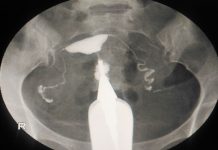In this Article
Oral contraceptive pills or birth control pills are tablets taken by women orally to prevent unplanned pregnancy. Birth control pills work by preventing ovulation. All forms of oral contraceptives contain synthetic variations of the hormones oestrogen, progesterone, or both. When used correctly, pills are 99% effective in preventing pregnancy. However, they do have several long and short-term side effects that women may experience.
Why do Birth Control/Contraceptive Pills Cause Side Effects?
Birth control pills contain the hormones oestrogen or progesterone. The pills have to be taken at the same time every day for an entire month to be effective. This causes an increase in the body’s oestrogen and progesterone levels. When hormone levels in the body are raised unnaturally for a prolonged duration of time, it causes unpleasant side effects.
Short-Term Side-Effects you may Experience when on Birth Control Pills
Here are the various short-term side effects women may experience while on birth control pills.
- Nausea: This is the most common side effect of birth control pills. Women usually feel nauseous for up to 3 months after they start taking the pill. Nausea can worsen if the pills are taken on an empty stomach. Hence, it is better to take the pill along with food. Nausea usually subsides on its own after 3 months.
- Tenderness in Breasts: This is a side effect that may persist for a while. The breasts swell and become tender and very sore. You can reduce the soreness in the breasts by wearing soft bras and by reducing the amount of salt and caffeine that you consume.
- Mood Swings: Studies have found that hormonal birth control can affect the thickness of certain areas of the brain, especially the parts responsible for emotions and reward response. This could result in mood swings and even depression.
- Migraines: Many women reported experiencing mild to severe migraines as soon as they started taking the pill. The intensity of the headaches differed based on the ratio of hormones the pills contained. These headaches usually subside once the body starts getting used to the pills.
- Weight Gain: Weight gain is another common side effect of birth control pills. This is caused by fluid retention in areas of the body like the hips and breasts. Increased oestrogen levels in the body can also modify the size and dispersal of fat cells in the body.
- Decreased Libido: Lowered sex drive is another side effect of the pill. It may be due to the effect of other symptoms like breast soreness or headaches. It may also be caused by decreased lubrication and dryness in the vagina that can make intercourse uncomfortable or even painful. If you experience pelvic pain after intercourse while on the pill, talk to your doctor for advice on how to treat it.
- Fluid Retention: Birth control pills cause the body to retain excess fluid in areas like the hips, ankles, and breasts. The pills also affect the intestinal bacteria that are naturally present in our gut. If there is an increase in the bacteria, there is an overproduction of gas which leads to bloating.
- Skin Problems: The hormonal changes in the body caused by the oral contraceptive pills can result in skin problems such as acne, pigmentation and dryness.
- Vaginal Irritation: Changes in hormonal levels due to the pill can cause decreased lubrication in the vagina. This causes dryness, itching and discomfort in the vaginal area.
- Blood Clots: This is an uncommon, yet serious side effect of birth control pills. Women who are over 35, smoke or are overweight are at higher risk of developing blood clots while on the pill. Symptoms of blood clots in the heart or lungs include chest pain and breathing problems. Pain or swelling in the legs could indicate blood clots in the legs.
- Skin Irritation and Redness: The pills can also cause skin irritation, redness and swelling in some women.
- Changes in Vaginal Discharge: Some women may experience increased vaginal discharge while on the pill, while others may experience dryness. If you notice that the discharge has an offensive smell, contact your doctor to rule out infections.
- Spotting: Most women experience vaginal bleeding or spotting between menstrual periods in the first 3 months after they start taking the pill. This should subside within a few months on its own. If spotting persists, contact your doctor.
- Missed Periods: Yet another side effect of the pill is missed periods. Chances of skipping a menstrual period are higher if you are stressed, sick or have thyroid problems while on the pill.
- Vision Problems: Hormonal changes from taking the pill can cause dry-eye, which affects vision. Fluid retention and swelling can also cause changes in the shape of your cornea, affecting vision. This especially affects women who wear contact lenses, as the lenses may feel uncomfortable due to the swelling.
Most Common Long-Term Side Effects of Birth Control Pills
These are the different long-term side effects of birth control pills:
- Cardiovascular Issues: The combination pills containing both oestrogen and progestin can cause cardiovascular problems, such as increased risk of blood clots, heart attack and stroke. Women with a family history of heart disease or high blood pressure should talk to their doctor about alternatives to the pill.
- Diabetes: A few studies have shown that some non-diabetic women developed diabetes after prolonged use of oral contraception. This is because high levels of hormones from the pills can have a pronounced effect on blood sugar in the body. This it becomes difficult for the body to control high blood sugar levels, leading to diabetes.
- Cancer Risk: Prolonged use of birth control pills has been linked to an increased risk of breast and cervical cancers. They have also been linked to a higher risk of developing benign tumours in the liver and liver cancer.
- Deep Vein Thrombosis: Long-term use of the pill has an increased risk of deep vein thrombosis (DVT). DVT takes place in the deep veins of the lower leg and is a type of blood clot. This is dangerous as a piece of the clot can break off and travel to the heart or pulmonary arteries, causing a heart attack or pulmonary embolism.
- Depletion of Nutrients: The pill cause nutrient depletion in women. As there are large amounts of hormones in the pills, the nutrients that you take in are not absorbed properly by the body. The pills also cause oxidative stress, which is the inability of the body to efficiently expel waste. This can lead to cell damage and faster ageing. Taking vitamin E and C supplements can help reduce this side effect.
- Pituitary Gland Problems: Prolonged use of oral contraception has been linked to pituitary gland problems. The pituitary gland is an important hormone-producing gland in the brain. The size of the pituitary gland decreases with long-term use of the pill.
- Gallstones: Women who have gallstones find that oral contraception rapidly increases the size of their gallstones.
- Yeast Infections: The oestrogen in the pills can cause a reduction of bacteria that are naturally present in our body. This can cause overgrowth of yeast, resulting in a yeast infection in the vaginal area. Symptoms include itchiness, smelly cottage cheese-like discharge, and pain. Contact your doctor for treatment of the yeast infection.
How can you Reduce the Side Effects of Birth Control Pills?

Now that you know the relationship between birth control pills and their side effects, you can talk to your doctor and decide on the method of contraception that suits you best, based on your medical history. The types of birth control pills that are available are plenty, each containing different types and levels of hormones.
The oestrogen birth control pills side effects can be reduced by changing the dosage of oestrogen in the pill or by changing to combination pills. Whatever symptom you have, consult your doctor to find out how to treat or reduce them. Your doctor may also suggest alternative forms of birth control if you find that pills just do not work for you.
Contact your doctor immediately if you experience symptoms like abdominal pain, swelling or pain in the legs, chest pain, breathing problems, excruciating headaches or blurry vision when taking oral contraceptive pills.
Based on the information about long and short-term side effects of oral contraceptive pills, you can decide whether to use them as a means of birth control. Your doctor can help you determine whether the pill is suitable for you based on your medical history.









